Hands-on Learning Preparing Students as Health Science, Human Service Professionals
Making a Big Difference in McLennan County
Leaving the classroom, ever the historian

A&M


A&M
Tarleton is unique. You’ve been an integral part of it; it’s been a major part of your life and career. Renew your connection!
Join the Tarleton Alumni Association and link to the friends, the memories, the events that are still Tarleton today.
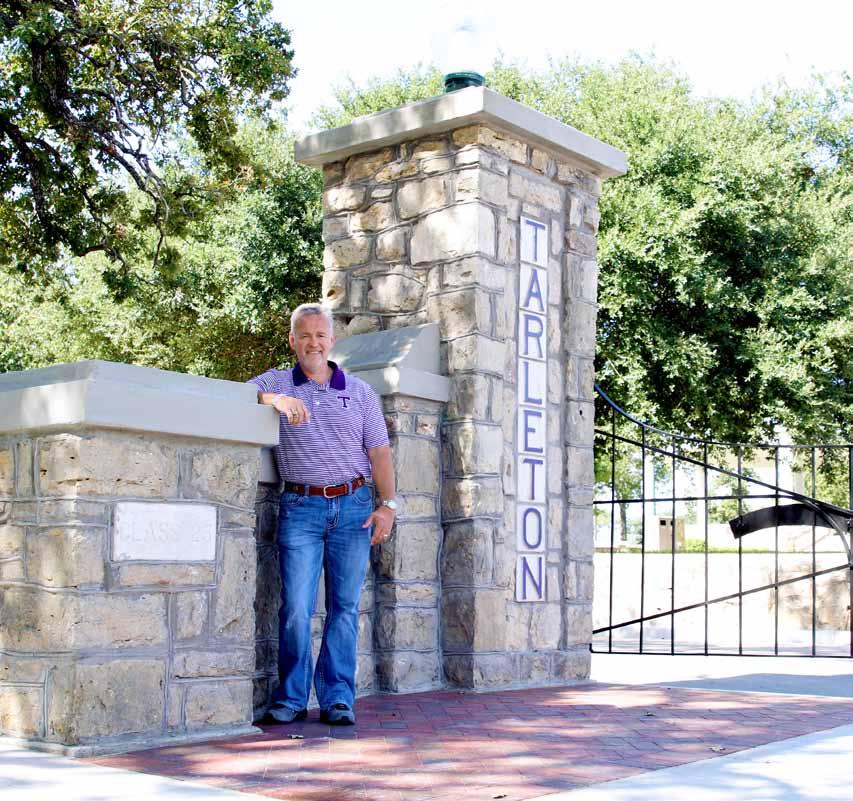
Membership dues continue the tradition – 100% goes to scholarships for today’s students. Your dues can make a difference in the life of a Tarleton student.
As president of The Alumni Association, I’ve inviting you to reconnect and, in the process, help support current students. Memberships begin with as little as $50.
– www.tarleton.edu/giving
Luke Lawson ClassHall of Fame
the launching on a new Texan Rider


Students at Tarleton-Waco are working hand-in- hand with local agencies to improve lives
Leaving the classroom, ever the historian Dr. T. Lindsay Baker retires from the classroom, but continues his passion for history
A spotlight on Tarleton Golf Coach Jerry Doyle
Tarleton benefits from alumnus Col. Charles Leigon’s premium value on education
Hailey Roberts may need to find a bigger trophy case.
The TexAnn volleyball standout, featured in a story in the August ’16 Tarleton Magazine, has been named the top player in the nation by the Division II Conference Commissioner’s Association.

The all-time kills leader for the Purple and White is also a three-time all-conference pick, a five-time allregion honoree, a four-time AllAmerica selection and was twice voted the D2CCA Regional Player of the Year.
With Roberts leading the way, Tarleton advanced to the 2014 Lone Star Conference Championship, the regular season conference title in 2015 and the team’s first three trips to the NCAA regional tournament. During her three seasons on the court, the TexAnns have won 78 games, with only 22 losses.

T hanks to a new $3.8 million facility, all agricultural mechanics programs now are located under one roof for the first time since 1959, allowing for more efficient operations and effective instruction.

The new Agricultural Field Machinery and Fabrication Laboratory officially opened with a January ribbon cutting—part of the school’s yearlong 2017 centennial celebration as a founding member of The Texas A&M University System.
The 24,000-square foot facility includes three laboratories—one each for metal fabrication, agricultural power, and agricultural structures—as well as classrooms, a computer laboratory, events kitchen and meeting spaces.
Funding for the project was provided by the A&M System and private donations— predominantly from the Pevehouse Family Foundation.
The banner year for studentathlete Cody Burtscher continued as the Lone Star Conference Linebacker of the Year earned All-America acclaim for his work in the classroom and a national semifinalist for the National Football Foundation’s William V. Campbell trophy.

Burtscher finished the season as the LSC leader in tackles with 117, six for a loss, with 4.5 sacks and three interceptions. He was named the LSC Defensive Player of the Week after lifting the Texans to a 35-5 win over Angelo State in September. He also boasts a 3.93 grade point average as a bio-medical science major.
He is the fifth Texan in school history to earn Academic All-America honors and the second in Tarleton’s NCAA era, joining his former teammate Charles Moore who was a CoSIDA All-America honoree in 2014. Burtscher joins Moore, Mike Loveless (1990), Ricky Bush (1981), and Tommy Konz (1972) to earn Academic All-America recognition.
Tarleton’s Rodeo Hall of Fame inducted five new members during its seventh annual steak dinner and auction Saturday, Nov. 11. Pictured below, from left, are Ronnie Ray, Levi Garcia, Debbie Garrison, Kurt Kiehne and Richard “Tooter” Waites.

Each honoree was presented a bronze Rodeo Hall of Fame medallion by President F. Dominic Dottavio and head rodeo coach Mark Eakin.
Ashley Willits, an agricultural education major from Copenhagen, N.Y., was elected Eastern Region vice president for the National FFA Organization. She will serve on the 2016-17 national officer team along with students from Delaware, Florida, Minnesota, Texas and South Carolina.

Willits will travel throughout the United States over the course of the year, as well as to Japan, representing FFA members striving to develop premier leadership, personal growth and career success through the context of agricultural education.
Willits is the third Tarleton student elected to a position on the national FFA officer team.
Need more information?
Check out these resources.
For information about enrolling at Tarleton, go to tarleton.edu/welcome

Discover ways to give back to your university at tarleton.edu/giving
Check out the latest sports stats and information at tarletonsports.com
Reconnect with old classmates at tarleton.edu/ alumniassociation
For everything else, go to tarleton.edu
Chat with us! facebook.com/ tarletonstate Tweet us! @tarletonstate Follow us! TarletonState
The university kicked off the spring semester with a refreshed Texan Rider spirit mark.
President F. Dominic Dottavio and Athletic Director Lonn Reisman unveiled the new mark during a pep-rallystyle celebration in the Barry B. Thompson Student Center that featured the Texan Rider mascot, Foul Play (basketball band) and the cheer squad.
Those present received shirts, caps and other items sporting the new logo.
Designed by Rickabaugh Graphics—a nationally recognized collegiate branding firm—the unveiling follows more than a year of talks with university leaders, students, faculty, staff and alumni. Final selection for the refreshed mark was based on an online survey last summer. More than 50 percent of the 3,000 who completed the survey responded favorably to the proposed logo options.
percent of students who are first-generation
Number of degrees awarded during May 2017 Commencement ceremonies
Number of students enrolled in 50 undergraduate, graduate and certificate programs at the Fort Worth location
total dollars raised on the second annual Day of Giving held April 4, 2017
The Texas Council of Professors of Educational Administration (TCPEA) has named Dr. Don Beach Educator of the Year.
Beach joined Tarleton in 1981 as dean of the college, but later returned to teaching full time. Prior to coming to Tarleton, he was at the University of Texas at Arlington for eight years and, before that, taught science and biology at the elementary and secondary levels.
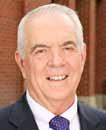
A writer and researcher, Beach has authored or co-authored nine books, has chapters in 14 others and has written more than 50 scholarly articles for professional journals.
He was named Regents Professor in 2008 by The Texas A&M University System and is recipient of Tarleton’s O.A. Grant Excellence in Teaching Award, the Ted Booker Award from the Consortium of State Organizations for Texas Teacher Education and the Laureate Award from the Association of Teacher Educators.
The Fort Worth Museum of Science and History has selected Dr. Anthony Edwards to chair its new technology committee. The director of Tarleton’s Global Campus is a member of the museum’s board of trustees.
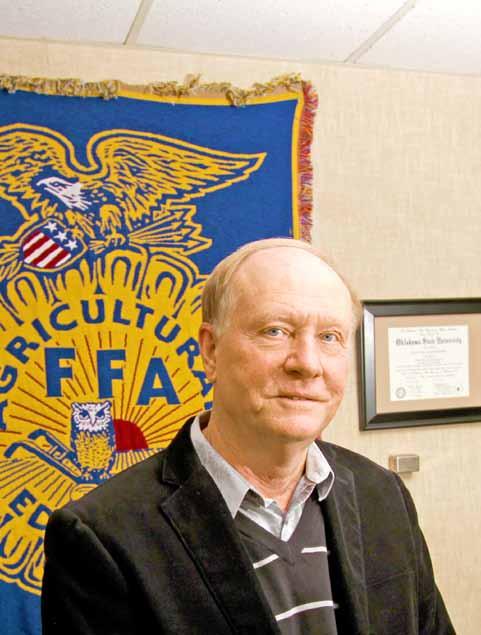

Edwards joined Tarleton in 2012, and is responsible for the university’s online learning program. The Global Campus offers more than 20 bachelor and master’s degree programs.
He also serves on boards and committees for a number of local organizations, including the United Way of Tarrant County, and is a member of Leadership Fort Worth. He has a bachelor’s in biomedical science from Texas A&M University, a master’s in health administration from Texas A&M Health Science Center and a doctorate in education from Tarleton.
Pursuing a career in education and leaving behind the ranchland and farm fields near Priddy, Texas, was simply a back-up plan.
After graduating in 1975 from Texas A&M with an agricultural education degree, Dr. David Drueckhammer returned to the Mills County family farm. In just one summer tilling land and working livestock, he realized he was meant to work with students.
“I missed people and being around other educators,” he said. “Working with students individually and getting to know them, witnessing their successes…seeing them have a feeling of accomplishment makes the job worth it.”
Drueckhammer started his ag teaching career on a Navajo Reservation. After two years, he returned to Central Texas to teach and lead FFA chapters, advising young men and women with livestock projects. He eventually earned a doctorate of education from Oklahoma State University and joined the faculty at Tarleton.
Now an associate dean in the College of Agricultural and Environmental Sciences, Drueckhammer is known to look for the best in others, especially those students who may be struggling academically.
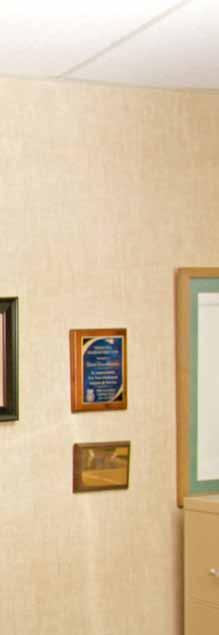
“Many times, these students come from situations where they weren’t given guidance or knew what they were getting into when going to college,” said Drueckhammer, a first generation college student himself. “Every situation is different. You have students come in who have real reasons why they were struggling and others that just need some extra guidance.
“Most have supportive parents, and some are totally on their own. Working with these students on warning and suspension has turned out to be something very rewarding. Sometimes there are challenges, but I enjoy it. Over time it became fun to do and rewarding when I started to see some of those students graduate.”
Dean Steve Damron said Drueckhammer treats students, colleagues and support staff with equal respect and courtesy.
“He’s rock steady. Admired, respected and valued as a cornerstone of our college,” Damron said. “Dr. Drueckhammer is a living history repository for the growth and changes at Tarleton and in the college.”
After 26 years, he should be. He’s served as department head and various interim administrative roles throughout his tenure at Tarleton. Now, he’s associate dean and a professor in agricultural and consumer sciences.
It’s the people, he says, who have made his career most enjoyable.
“I simply want for others to be interested and concerned in the well-being of others,” Drueckhammer said. “If I can influence people to show concern, to take action, to improve situations for other people that would be the legacy I’d like to leave. Maybe, in at least some situations, I’ve done that.”
Luckily, for Tarleton and hundreds of its alumni, the kid from Priddy decided to leave the farm and pursue his passion for educating others.
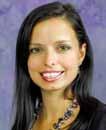
Dr. Amber L. Harris-Bozer, assistant professor in the Department of Psychological Sciences, has been named the first associate editor of The Journal of Social Media in Society (JSMS).
A product of Tarleton’s Texas Social Media Research Institute (TSMRI), the peer-reviewed JSMS launched its first issue in 2012, and its success has led to this addition to the editorial team.
Harris-Bozer came to Tarleton in January 2014. She teaches undergraduate and graduate courses, primarily in biological psychology. Her EEG lab investigates how chronic pain is processed in the brain. In addition to her neuroscience research, she has been involved in teaching-as-research projects. She previously served as a reviewer for the JSMS.
Dr. Rusty Freed has been selected associate vice president of Tarleton’s outreach and off-campus programs.

Tarleton operates outreach centers in Fort Worth, Waco and Midlothian as well as a Global Campus that offers more than 20 undergraduate and graduate degree programs.
Freed began his career at Tarleton in 1986 as an adjunct instructor in the College of Business Administration, advancing to executive director of the university’s Academic Advising Center in 2012. He replaces Dr. Kim Rynearson who returned to Tarleton’s College of Education last fall as head of the Department of Psychological Sciences.
Freed served as director of Tarleton’s Small Business Development Center from 1987 to 1995 before becoming head of the College of Business Administration’s Department of Management, Marketing and Administrative Systems and coordinator for off-campus programs. He was instrumental in planning and executing business programs at Tarleton’s Waco center on the campus of McLennan Community College as well as online graduate and bachelor’s degree completion programs.
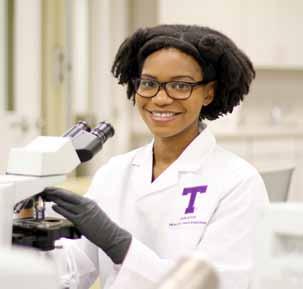
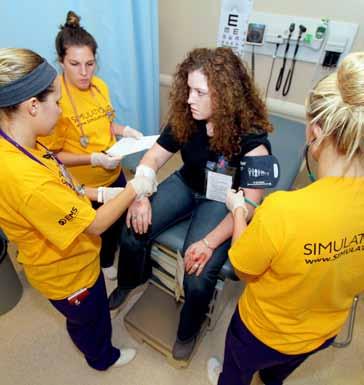 B Y M A r Y S ALTA re LLI
B Y M A r Y S ALTA re LLI
When junior nursing students Haylee Fritts, Michaela Henderson and Madison Bertzyk entered a hospital room, they found a 68-year-old man suffering from Chronic Obstructive Pulmonary Disease, or COPD, exacerbated by pneumonia.
Weak and confused, the patient coughed repeatedly as his daughter sat by his bedside holding his hand. The students, dressed in purple scrubs with nursing credentials hanging around their necks, went to work as a team, assessing their patient. When he told them he couldn’t get air, they immediately sat him up to relieve pressure on his chest.
By the end of their assessment, and after several nursing interventions, the students had ensured their patient’s safety and returned his blood oxygen to healthy levels.
They also had encountered challenges. Madison forgot to put on gloves, and the patient coughed up sputum that landed in her hands.
Fortunately for Madison, the patient was a mannequin programmed with human responses, and the class was on learning to care for adults in Tarleton’s high-technology Texan Simulation Hospital.
“Messing up in simulations helps us remember the right things to do,” Haylee said. “Then we’re better prepared to deal with real patients who have real problems. We’re actually learning how to save lives.”
Texan Simulation Hospital creates a realistic setting where undergraduate nursing students perform some of the 945 hours of hands-on patient care they must complete to graduate. Students also provide care for live patients in regional hospitals and clinics. Texan Simulation Hospital is so well equipped that it could be used, if needed, as a backup for the Stephenville hospital in the event of a community emergency.
Patient care simulations are one example of academic innovation and student transformation through experiential learning for students in Tarleton’s new College of Health Sciences and Human Services. Within the college, students learn five professions requiring licenses or certification—nursing, counseling, social work, laboratory sciences and public health.
“We prepare students for the helping professions,”said Dr. Karen Murray, Provost and Executive Vice President for Academic Affairs. “Through vital hands-on experiences, our students learn about human behavior, develop respect for each person’s dignity and begin to learn the art of helping in their own chosen professions. They practice following their field’s values and code of ethics.”
An internship at a Fort Worth domestic violence shelter provided graduate student Sasha Sharp with some of her required 1,000 hours of counseling practice. At the shelter, Sasha carried her own caseload, counseling adult clients and
“I can honestly say it was one of the most beneficial experiences I have ever had,” Sasha said. “It made me a better person who’s more in touch with others’ thoughts, feelings and emotions than ever before.”
Real world practice inspired senior Samantha Rodriquez to improve the field of social work through advanced research. During her project, Samantha learned that unemployment is the leading cause of suicide across the country.
Samantha’s research humanizes cold statistics and looks at how social workers can improve existing services for those suffering from the trauma of unemployment. As part of her required 450 hours of field experience, she is presenting her research findings at professional conferences.
“My education increased my worldview and taught me skills necessary to be an effective social worker,” Samantha said. “Without my experiences, I’m unsure whether I would have the confidence to advocate on a large scale. Now I’m positive there’s a seat at the table with my name on it.”
Hands-on learning at Tarleton’s state-of-the-art medical lab in Fort Worth introduces a whole new world of blood cells and microbes to medical laboratory science students like Fahim Zubair. Students acquire proficiency in tasks needed to work in a real-life clinical setting, including analyzing samples, preparing tissues and drawing off precise amounts of fluid from a specimen.
“The lab allows us students to really slow down and take time to perform a complicated analysis or review a significant concept,” Fahim said. “The interactive environment has greatly enhanced my learning and skills.”
In addition to practicing in Tarleton’s lab, bachelor’s degree students spend 1,000 hours preparing, analyzing and testing samples at local hospitals and clinics, where they learn to treat every specimen as infectious. During the Ebola crisis in North Texas, Tarleton graduates were instrumental in detecting the virus.
Fahim’s hands-on experiences helped him discover his curiosity about hematology, which he is pursuing through independent study of blood cell samples.
“Experiential learning helps students grow and develop their own interests,” Murray said. “They discover their passions and we help them become experts in their chosen fields.”
Department heads Dr. Julie Merriman, counseling; Dr. Sally Lewis, medical laboratory sciences and public health; Dr. Susan M. Rugari, nursing; and Dr. Melody Loya, social work, collaborate to develop programs that teach students to work together as multi-disciplinary, patient-centric teams.
Tarleton’s College of h ealth Sciences and h uman Services offers degree programs in nursing, counseling, histotechnology, medical laboratory science, public health and social work. Depending upon the field of study, classes are held at four different locations—Stephenville, Fort Worth, Midlothian and Waco, as well as online via Tarleton’s Global Campus. For more information, visit www.tarleton.edu/chshs.
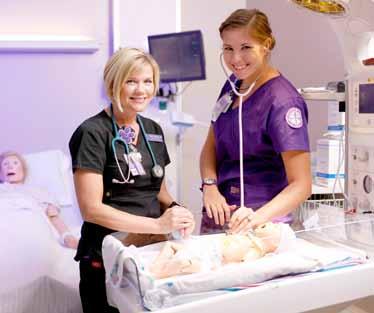
To aid in that goal, they plan a second simulated mass casualty event this fall on the Stephenville campus that will involve the entire community. Nursing, counseling, social work and public health students will team up during the simulation to treat patients.
“We’re training students in all four disciplines to have a multi-focus team approach to patient care,” Murray said. “We want them to work together to care for a patient’s mind, body and environmental situation. Real-world learning experiences make that happen.”
BY Ce CILIA J ACOBS
Undergraduate and graduate social work students at Tarleton-Waco on the campus of McLennan Community College are working hand-in-hand with these agencies and others through multiple-semester projects and internships to improve lives, from homeless youth to ex-offenders integrating back into the community.
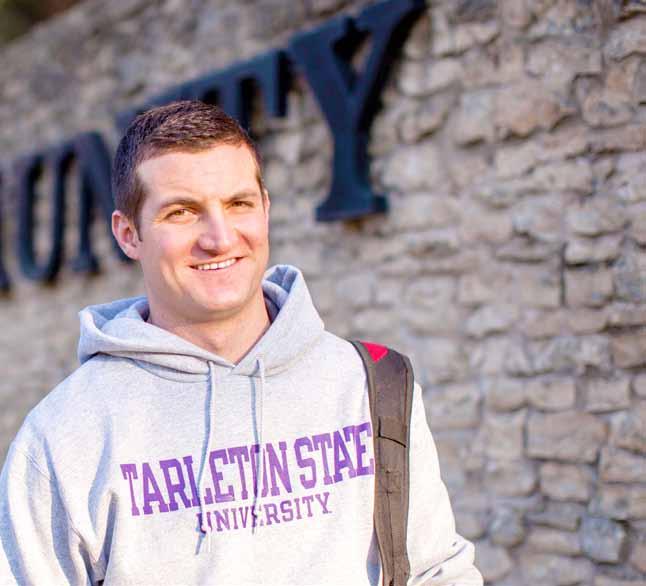
They’re making a BIG difference in McLennan County, creating hope for those in need.
Talk with agency leaders or any of the Tarleton-Waco social work students participating in the applied-learning opportunities, and you’ll hear the same story.
Students get a firsthand education par excellence, an opportunity to explore career pathways and the personal feel-good that comes with civic engagement. Agencies get the help and support of enthusiastic students who truly want to give back.

Like many of Tarleton-Waco’s social work majors, Eloisa Martinez turned her undergraduate internship into a full-time hire. She did such a great job working with kids on probation at the Heart of Texas Region MHMR Center that she landed a job as case manager for the FACT (Forensic Assertive Community Treatment) Team.
The team helps adults with mental health issues successfully transition into the community following jail time, and seeks alternatives to incarceration for those who need treatment.
“We do everything humanly possible to successfully reintegrate these individuals into the community and keep them out of the criminal justice system,” the second-semester graduate student said. “Jail is seldom the right place for people with mental illness. They need to be directed toward treatment options and guided back to the right path.”
That’s exactly what Heart of Texas is doing through a collaboration of area services and supports— Cenikor, Mercy House, Fair Chance, Prosper Waco, to name a few—known as the Reintegration Program, and a partnership with the McLennan County District Attorney’s Office.
When the steering committee for the McLennan County Reintegration Program first met in 2012, members underestimated the group’s life-changing impact on the community, and the individuals it serves. Michelle Flowers is a witness to the program’s overwhelming success. A junior in Tarleton-Waco’s social work program, she works full time as an administrative technician for Heart of Texas, often supporting Reintegration Program efforts. Earlier this year, she joined other Tarleton-Waco social work students to organize a summit so the county’s criminal justice officials, mental health agencies and renewal groups could share best practices and discuss new strategies to reduce recidivism.
“Heart of Texas Region MHMR offers a holistic approach to mental health and incarceration,” Michelle said. “It’s more than counseling and recovery. People with mental health and behavioral issues need assistance to get back on their feet—employment, medical care, housing—a hand up instead of a handout.”
McLennan County District Attorney Abel Reyna agrees. He’s a huge advocate of providing a fresh start. His pretrial intervention program (PTIP)—an extension of Heart of Texas’ jail diversion efforts—is off to a running start, with TarletonWaco social work interns set to help with screenings and assessments.
“As far as I know, there’s no program like it in Texas,” Reyna said of PTIP. “The program not only gives offenders an opportunity to avoid the criminal justice system, but offers them a chance to have their case expunged.”
Tarleton-Waco’s social work students started a multiple-semester project in 2016 in concert with NAMI (National Alliance on Mental Illness) Waco. In addition to cutting-edge research, students help raise mental health awareness through education, support and advocacy.
“NAMI Waco is extremely grateful for the help we receive from Tarleton social work students,” said Cynthia Cunningham, the local agency’s executive director. “It takes an entire community to care for a community, and Tarleton-Waco’s social work students and faculty play a big role in that effort.”
Last summer, Dr. Tancy Horn-Johnson, program manager and instructor for Tarleton-Waco’s social work program, was elected president of the board of directors for the local NAMI chapter.
“Tarleton’s social work students—mostly non-traditional— and faculty have strong ties to the community,” said Jerrod Clark, director of social services for Mission Waco, “and see projects and internships as a chance to help the poor and marginalized achieve a much better quality of life.”
Started by Jimmy and Janet Dorrell in the late ’70s, Mission Waco helps the community’s needy with everything from health screenings to after-school care to recovery and renewal programs.
Tarleton junior DeAngela Bynum works with the nonprofit to promote visas for nonimmigrants and their families who’ve suffered violent crimes and are willing to help McLennan County law enforcement prosecute their offenders.
Two seniors—both with the same last name but spelled differently—are gaining real-world social work experience through Mission Waco’s Legal Services (now Greater Waco Legal Services), available to those who can’t afford a private attorney. To hear Yuri Gonzalez and Paulina Gonzales tell it, their experience at Mission Waco is
paramount to a successful future in social work.
“My internship brings classroom learning full circle,” said Yuri, a full-time certified nursing assistant at Baylor Scott & White-Hillcrest. “I’m learning by doing, and that gives me the skills—not just textbook knowledge—I need going forward.”
Following graduation in May, Yuri plans to continue her hospital career as a case worker, helping Spanish-speaking patients and their families get the best medical care possible.
Paulina wants to go for a master’s in clinical social work at Tarleton-Waco and pursue her passion to help teens with emotional difficulties or mental illness.
“For me, a career in social work is about helping others— those who seem to fall through the proverbial crack—enjoy a quality of life that many take for granted,” Paulina explained. “Social workers care about people, want to make things better, relieve suffering and do some good in the world. That’s who I am and, thanks to Tarleton-Waco and its community partnerships, that’s what I’m doing.”

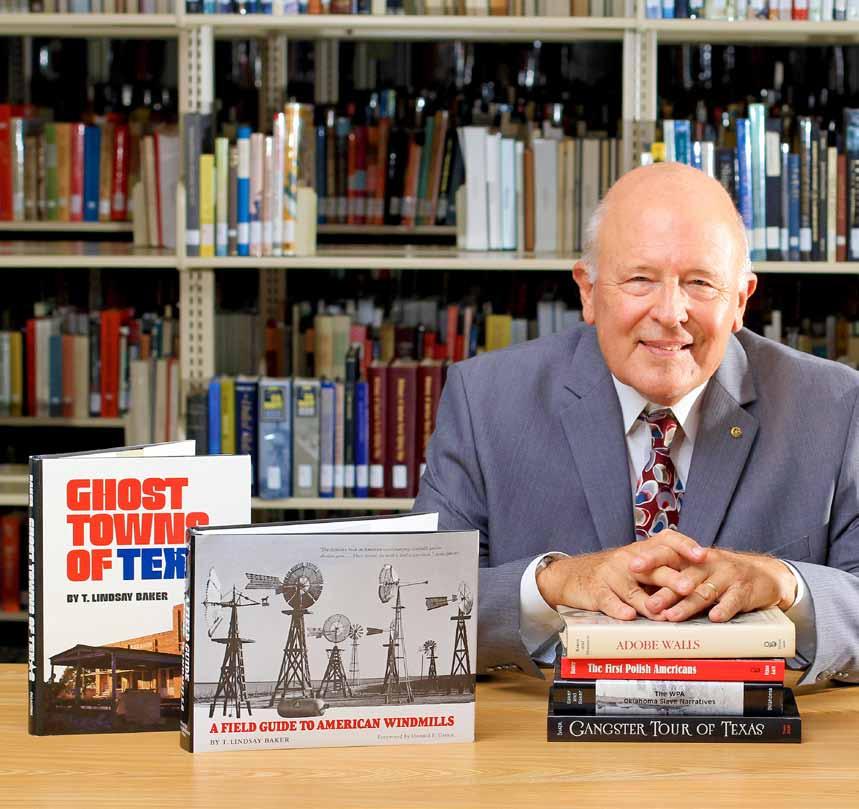 BY Ph IL rIDDL e
BY Ph IL rIDDL e
Tarleton history professor Dr. T. Lindsay Baker decided long ago to retire from the classroom at age 70, and he reached that benchmark in April.
“The time has come,” he said. “I’ve seen too many colleagues hang on too long and be in the classroom past their prime. I don’t intend to do that.”
Baker, holder of the W.K. Gordon Endowed Chair and director of the Gordon Center for Industrial History of Texas in Thurber, came to Tarleton in 2002.
“The Gordon Center Museum was in the process of construction at that time,” he remembers. “When I interviewed for the job, it was a windowless, doorless concrete and brick hulk with the wind and dust blowing through it.”
Now, the highly regarded museum features a research facility and special collections library, with interactive exhibits that draw visitors and historians from across the globe.
A 1969 Texas Tech graduate in both history and geography, Baker began an almost five-decade career, studying and teaching aspects of history. He taught at his alma mater, consulted at San Antonio’s Institute of Texan Cultures and for the Kansas State Historical Society, and was a museum curator at West Texas A&M and later the Fort Worth Museum of Science and History.
He lectured at Baylor and the University of North Texas, and served a stint as director of the Texas Heritage Museum in Hillsboro.
With a richly resonant voice and a gift for storytelling, Baker also has hosted the T for Texas weekly radio program, providing two-minute capsules on interesting tidbits of Texas lore. In addition to airing on Tarleton’s KTRL public radio station, the vignettes have been picked up by other public radio stations in Texas and as part of the Texas Standard broadcasts. Baker has found his time at Tarleton uniquely fulfilling.
“Truly, the lovely division of half of the time devoted to the classroom and half devoted to the Gordon Center Museum operation gave the combination of things I found really satisfying throughout my career, which was working on both areas,” he said.
While Baker is retiring from the classroom, he is simply refocusing on other aspects of being a historian, including serving as editor of the Tarleton Series of Southwestern Humanities published by Texas A&M University Press.
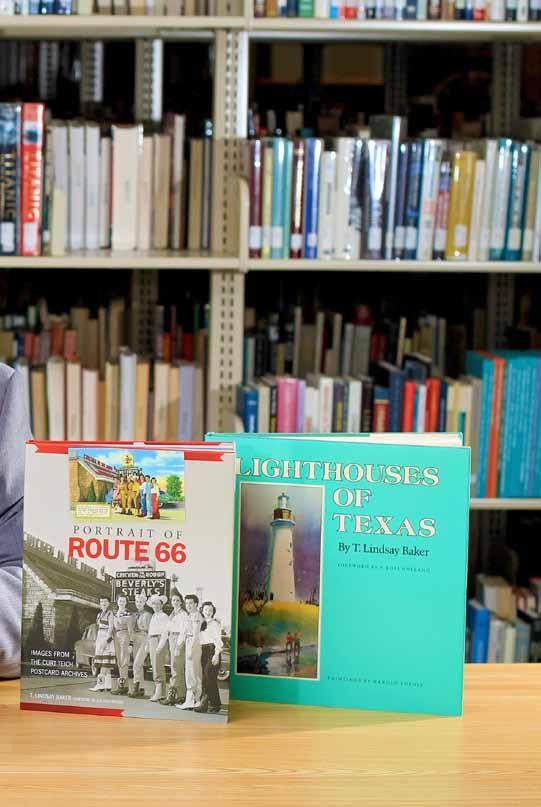
“I very much wanted to continue my role as editor of the Tarleton series because I’ve got historians, archaeologists, even an attorney, working on manuscripts,” he said. “I’ll continue to work with authors I’ve recruited.”
The Tarleton book series consists of more than two dozen titles covering nearly 30 years.
“This is really a prestigious thing for Tarleton,” Baker said. “Since Tarleton itself does not have its own academic press, this is a way that the university helps foster research and publication in that broad area of humanities in the Southwest.”
First book in the series was In the Heart’s Deep Core , written by Tarleton social science professor and director of the university’s Honors College, Dr. Craig Clifford, and published in 1986.
“This is the first book series sponsored by a constituent university in the A&M System,” he said. “My predecessor, Dr. Tom Pilkington, edited the series for 25 years, from its inception. When he began making plans to retire, he knew I had long connections with the professional staff at the A&M Press because I’d been publishing books there since 1979.”
In fact, Baker, the A&M Press’s most published author, has written 28 books, eight published there.
His most recent, Portrait of Route 66: Images from the Curt Teich Postcard Archives , is dedicated to his parents, who took him on a week-long trek down the southwest portion of the famous highway in 1956.
“I grew up in a family that took a week-long road trip vacation somewhere each summer,” he explained. “When you go on a vacation trip, you typically go to a historic site or a scenic site the mountains, the beach, a Civil War battlefield.
“Both really appealed to me as I was growing up. When I went to college at Texas Tech I had a double major of geography and history scenic places and historic places. I attribute the appeal of both to those summer road trips.”
In stepping away from the classroom, Baker will have the opportunity to travel in spring and fall, something the academic calendar prevented for most of his career. He already has trips planned to England, to study wind and water-powered mills, and Hawaii, to study volcanoes.
Aspects of teaching, he readily admits, will be hard to replace. “I’ll miss being around the students and my colleagues,” he said, “but I am a historian and an author, and all of my career I’ve been an author part time, so I will, for the first time, become a full-time author.”
“Choose a job you love and you will you never have to work a day in your life,” Confucius advised.
When asked how many days he’s had to work during his illustrious career, Baker smiled. “Not many.”
Dr. T. Lindsay Baker and a few of the books he has authored.
On Jerry Doyle’s desk in his office at Wisdom Gym is a display case full of championship rings touting his achievements over a 17-year run as the Tarleton golf coach.
As one of the nation’s most accomplished golf coaches, Doyle’s career verges on the legendary. He has won a record 10 conference championships since his arrival in 2000, including the 2017 title. The TexAnns won an unprecedented seven straight LSC crowns from 2008-14 under Doyle.
The Tarleton coach, just named LSC Coach of the Year for the 10th time, has also been honored as the Women’s Golf Coaches Association Coach of the Year in 2008, and the WGCA West Region Coach of the Year five times.
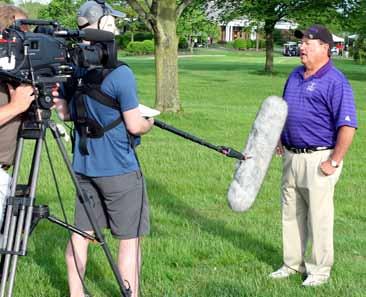
Under Doyle, the 2017 TexAnns, led by tournament individual medalist and LSC Player of the Year Casey Wild, dominated the postseason conference tournament in Frisco for their 10th title in 14 years, advancing to the NCAA Division II West Regional tournament in Wichita Falls.
Doyle began coaching after a two-decade stint in golf course management and a collegiate career as a scholarship golfer.
As a Tarleton agri-business graduate in 1975, he accepted a post at Diamond Oaks Country Club in Fort Worth, working for highly-regarded teacher and pro Doug Higgins.
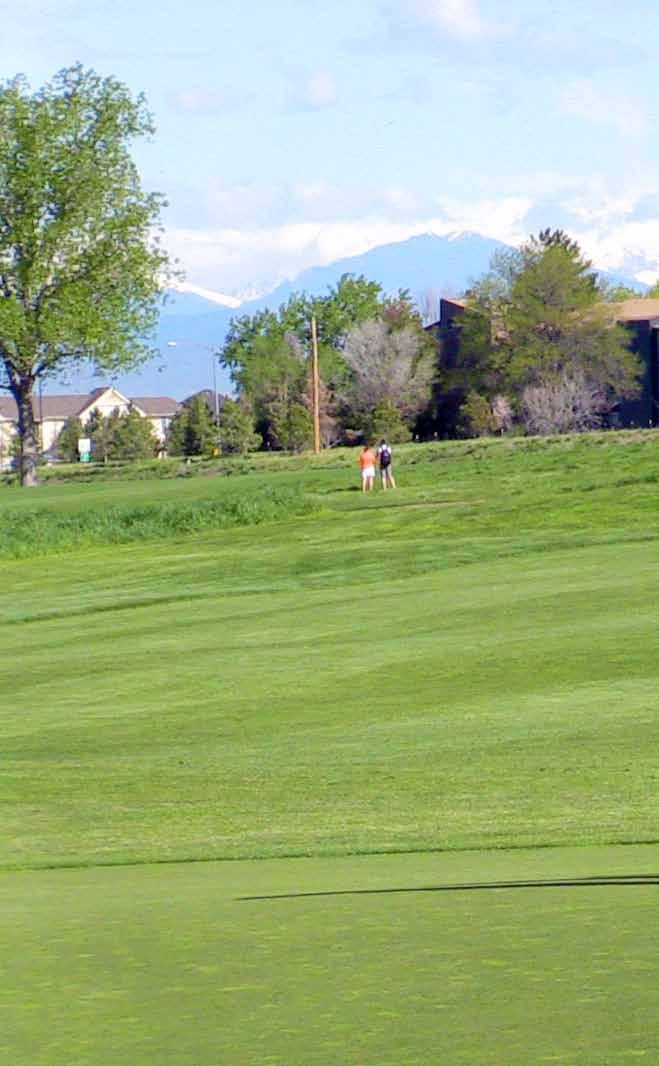
“He had played on the PGA tour,” Doyle said. “He was good friends with Arnold Palmer. Lee Trevino played there. Mark Brooks was taking lessons at the time. I was around these high-powered guys. I even caddied some on the tour for Don January and Bill Sikes.”
Doyle moved from Fort Worth to a position at Legends Country Club in Stephenville and finally to Lone Cedar Golf Club in Eastland, before once again being recruited to Tarleton this time to coach.

Doyle’s first teams struggled against better-established programs, and he realized the key to a better team is better golfers.
“I learned about recruiting,” Doyle said. “The best players in Texas were getting offers from Division I schools. I had to go out and get some of these really good international players.”
He initiated a network of international agents to find outstanding players. That plan netted the TexAnns top tier players from Malaysia, Australia, England and Spain, home to last year’s national Division II Player of the Year, Isabel Jimenez-Perea.
From left, Coach Jerry Doyle with TexAnn Golf Team members Casey Wild, Casey Leatherman, Beatriz Prados, Sarah Gee, Lydia Traylor and Isabel Jimenez-Perea

The imports have blended nicely with Texas talent to take the TexAnns to the top level of Division II competition.
“Isabel may be the best player I’ve had,” he answered when pressed. “She is very strong, a long hitter. She is my newest graduate assistant. She’s looking to get on the (LPGA) tour.”
Doyle counts among his blessings the fact that, with hearing loss so severe it required coclear implants, he was even able to graduate from college. The successful hearing device implants allow him to communicate with his players, something that would have been impossible before.
“That made going to college very tough,” he said of his deafness. “I still always dreamed about going back to college and becoming a coach. If it hadn’t been for the implants, I’d never have been able to come back here for this job.”
That dream became reality, and his new dream involves one more ring for his display case.
“We need a national title,” Doyle said. “I am going to get that national championship ring.”
charles Leigon knows the value of a quality university education. He also knows not everyone can afford one.
That’s why the Vietnam veteran has deeded family farmland near Morgan Mill to provide financial assistance for Tarleton State University students.
Ninety percent of the funds from the eventual sale of the property—expected to be more than $500,000—will provide scholarships to nursing students, while 10 percent will benefit those enrolled in Tarleton’s College of Liberal and Fine Arts.
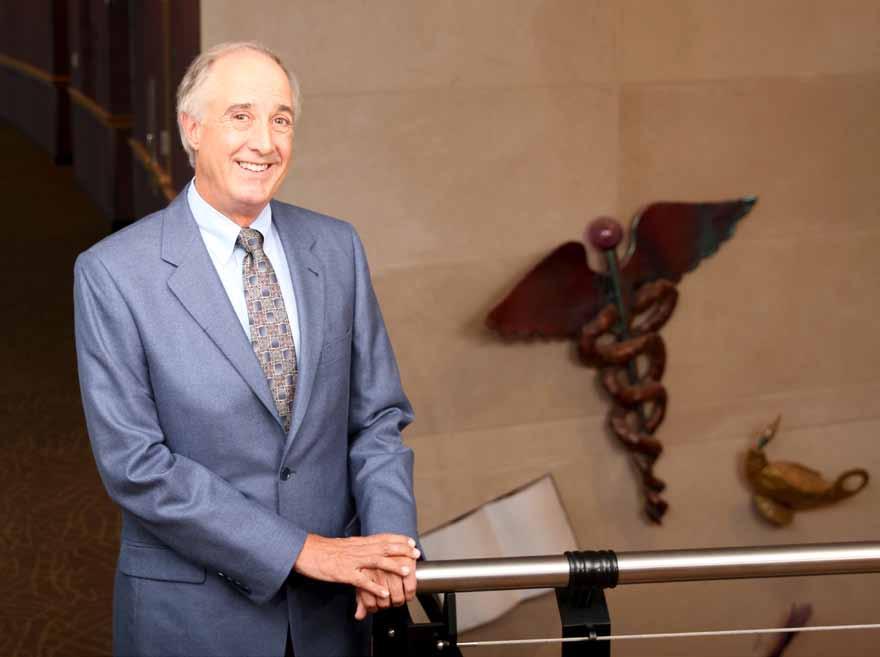
When Leigon’s father died during the Great Depression, his mother moved from the family farm into Stephenville, buying a 12-bedroom, two-story house on McIlhaney Street and turning it into a boarding house for students.
“My father remembers those difficult years,” said his son, Russell. “He’s never forgotten the students who rented rooms at the boarding house—students from rural Texas who had to work hard to pay for a college education—or his own financial struggle to earn a university degree.”
Leigon, now 97 and living in Austin, attended Tarleton in the late 1930s and later earned a bachelor’s degree in business administration from Trinity University in San Antonio.
“My father is deeply concerned that young people have the opportunity to get the kind of solid education that ensures career success and improves quality of life,” Russell explained. “I can’t recall a single visit over the past several years when our conversation eventually didn’t get around to young people and education. Donating the family farm to Tarleton has been his dream for more than 25 years. Now, it’s a reality.”
A retired U.S. Air Force colonel, Leigon began his distinguished military career in 1941, receiving his commission as a second lieutenant in 1943 and serving two years in the Asiatic-Pacific Theater in World War II. Before his service in Vietnam, he was base commander at Randolph Air Force Base in San Antonio and Air Force Missile Training Program commander at Sheppard Air Force Base in Wichita Falls, among other assignments.
In November 1968, he earned the Legion of Merit—the Air Force’s fifth highest honor— for exceptional, meritorious performance as commander of the 31st Combat Support Group in Vietnam.
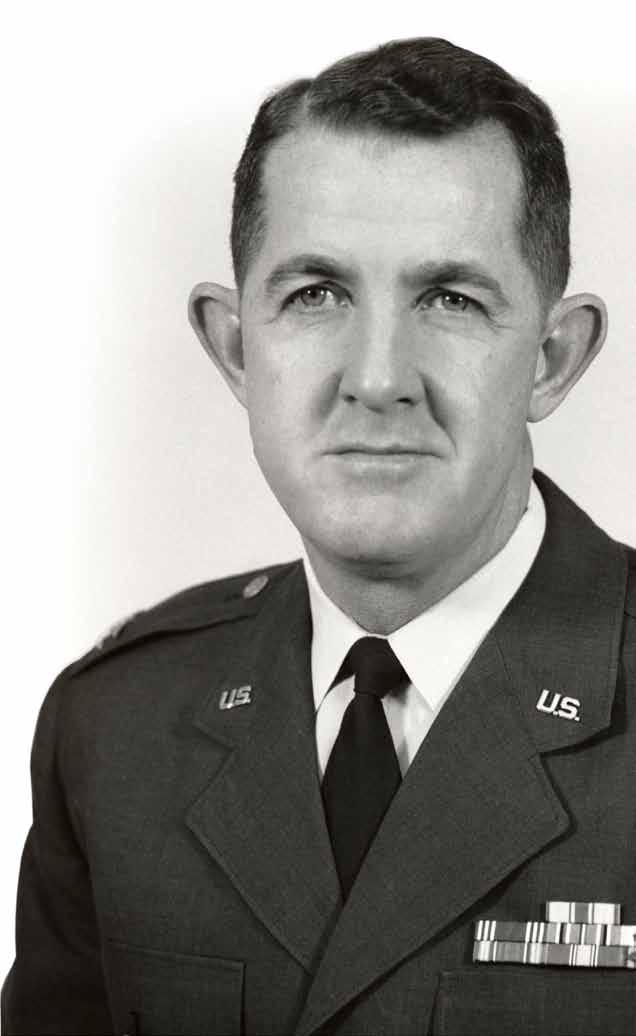
Leigon deeded the family farmland to Tarleton during the Department of Nursing’s 40th anniversary celebration last November.
“It’s always been a special place,” Russell said of the gifted land. “This seemed like the best place to put the farm.”
Tarleton honored several distinguished alumni, faculty and important friends in its annual Gala, Saturday, January 28, one of the designated events celebrating the university’s centennial as the founding member of The Texas A&M University System.

President F. Dominic Dottavio selected winners of The President’s Legacy Awards, recognizing individuals and supporters who exhibit Tarleton’s core values of integrity, leadership, tradition, civility, excellence and service.
With the stated goal of making the University of Tennessee a Top-25 public research university within a decade, Dr. Jimmy Cheek, took the reins as the institution’s seventh chancellor in 2009.
Under his leadership, the Knoxville campus has seen more than $1 billion of construction now underway or in design or planning stages.
As he prepares to leave the office to return to the faculty, Cheek takes pride in his tenure as chancellor, which saw improved delivery of student core services such as advising, mentoring and tutoring, resulting in higher retention and graduation rates.
Cheek earned his Tarleton bachelor’s degree with high honors and his doctorate from Texas A&M University. He received his master’s degree from Lamar University.
A six-term member of the Fort Worth City Council, Jungus Jordan has played a major role in aiding Tarleton’s initiative to establish a campus on 80 acres in Fort Worth near the Chisholm Trail Parkway.
Councilman Jordan enjoyed a distinguished career in the United States Air Force, including tours in Vietnam and Germany. He earned more than 15 medals and commemorations.
He also has been an active civic volunteer, previously serving as chairman of Fort Worth’s Zoning Commission and Process Improvement Committee and with numerous charitable organizations. Jordan earned a bachelor’s degree in economics from Texas Christian University.
TexasBank believes in investing in communities, meeting the financial needs of customers and fostering a motivated and dedicated staff. Its employees are engaged in community activities and seen as leaders. TexasBank supports the growth and well-being of the Brown, Comanche and Eastland county communities it serves.
Through the M.S. Doss Foundation, TexasBank focuses its support on family and youth services, community and economic development, and higher education scholarships.
TexasBank has provided $100,000 in scholarship gifts to Tarleton over the last four years. TexasBank Stephenville leadership are all Tarleton alumni, and TexasBank actively supports Athletics, The Dick Smith Friends of the Library and the Ultra Club.
Honored with the Tarleton State University President’s Legacy Awards are (from left) Fort Worth City Councilman Jungus Jordan, University of Tennessee-Knoxville Chancellor Jimmy Cheek and TexasBank represented by Connie Wooley. Also pictured is Tarleton President F. Dominic Dottavio (right).The Tarleton Alumni Association presented its annual awards for Outstanding Alumnus, Outstanding Young Alumnus, Distinguished Faculty and Distinguished Friend at the 2017 Gala Celebration in January.

A. Dwain Mayfield graduated from Tarleton State College with an associate’s degree in 1957, going on to earn his bachelor of science degree and a master of civil engineering from Texas A&M University.
Professionally, Mayfield served as a senior advisor for Lockheed Martin’s fighter and transport business initiatives.
He has made a lasting mark on Tarleton through his support of students, scholarship and philanthropy, and his service in volunteer capacities. He is the immediate past president of the Tarleton State University Foundation, Inc.
Mayfield and his wife, Lynda, established an endowed scholarship at Tarleton in engineering. He is a member of the College of Science and Technology’s Dean’s Circle, and teaches as advisor for the Tarleton Aeronautical Team.
A staff scientist for Texas Scottish Rite Hospital for Children in Dallas, Dr. Jonathan Rios began his trek to a career in life-changing healthcare research as an Outstanding Graduate of the Class of 2003.
After earning his doctorate in genetics from Texas A&M, Rios completed a prestigious postdoctoral fellowship at the University of Texas Southwestern Medical Center, Dallas.
Rios joined the institution’s Division of Molecular Genetics in 2011 and is Assistant Professor in Pediatrics. Additionally, he holds secondary appointments in the McDermott Center for Human Growth and Development and Department of Orthopedic Surgery at the University of Texas Southwestern Medical Center.
His research includes the discovery of genes causing pediatric musculoskeletal and developmental conditions.
Dr. Linda Jones, Tarleton’s first female dean, wore a variety of hats and achieved many milestones during her 22-year Tarleton tenure.
Among her accomplishments, she co-chaired the transition team that successfully guided the opening of the Tarleton University System Center in Killeen and served there as Associate Vice President for Academic Affairs.
A certified home economist, Jones has been honored as Woman of the Year by the Texas Association of Extension Family and Consumer Sciences.
Jones received her bachelor’s degree from Southeastern Louisiana University, her master’s from Louisiana State University and her doctorate from the University of Texas at Austin.
Alpha Building Corporation is an award-winning general contractor headquartered in San Antonio, with local project offices across Texas, Arkansas, Oklahoma, New Mexico and Tennessee.
Founded in 1969, Alpha Building Corporation received its first contract for The Texas A&M University System in 1992 and is responsible for many of the construction projects at Tarleton. Alpha was the lead contractor for the Alumni Island project and donated the funds for the John Tarleton bronze statue.
Alpha has won several Excellence in Construction Awards from the Associated Builders and Contractors, Inc., including the Eagle Award, the industry’s premier annual awards program honoring the nation’s most innovative and high quality construction projects and safety programs. Two of the award-winning projects are the Pedestrian Malls at Tarleton and the Rudder Auditorium at Texas A&M. Alpha was named General Contractor of the Year twice by ABC.
As CEO, Kathleen Acock provides corporate oversight, including developing the third-generation ownership and management team. Alpha supports the Tarleton Alumni Association, the Texan Club and President’s Circle. Ms. Acock is a member of the Tarleton Construction Engineering Advisory Council and the Texas A&M Construction Industry Advisory Council.
The Tarleton Alumni Association honored (from left) TAA board president Dr. Luke Lawson, Alpha Building Corporation CEO Kathleen Acock, A. Dwain Mayfield, Dr. Linda Jones, Dr. Jonathan Rios and Tarleton President F. Dominic Dottavio.
Molly Weinburgh and Dr. Cecilia Silva about teaching mathematics, science, and language to multi-lingual learners.
c hi P Davi S , B.S. in general business, ’73 M.Ed., was named Chairman of National Farm Life Insurance Company and received the 2016 American Council of Life Insurers’ (ACLI) Forum 500 Distinguished Service Award. The award is presented annually to an individual whose work has greatly contributed to the life insurance industry, especially to the small- and medium-sized life insurance companies the Forum 500 represents. Davis received the Tarleton Alumni Association Distinguished Alumnus award in 1995. In addition to the Forum 500 Board of Governors, Davis serves on the ACLI Board of Directors and is President of the Tarleton State University Foundation Board.
g ary l iar D on, B. a . in English and history, has been appointed the PetersenDean Roofing and Solar Division President for the Central and Eastern regions of the U.S. Prior to his promotion, Liardon was Division President of the Central U.S. region. Liardon joined the PetersenDean team in 2014 after 25 years of experience in residential and commercial sales and construction management spanning all major markets in Texas.
Johanna e a SD on h ick S , B.S. in education, was recently honored at the National Extension Association of Family and Consumer Sciences conference in Big Sky, Montana, for her work with the Twogether in Texas. Hicks is the Family and Consumer Sciences Extension Agent in Hopkins County. She and her husband reside in Sulphur Springs.
’81 Bo BB y r igue S , B.S. in education, was reelected to the Board of Directors for the Texas Association of School Boards. Rigues of Aledo ISD will represent TASB Region 11, position A, with a three-year term. Since 2004, Rigues has served on the Aledo ISD school board, holding both president and vice-president positions. He is a 2009 Leadership TASB graduate and recipient of the 2010 LTASB Alumni Leadership Award. In 2011, Rigues was named the Texas School Public Relations Association’s Key Communicator. In 2011, his statewide grassroots initiative, Make Education a Priority, gained local and national attention for its public education advocacy efforts. In 2016, he assisted in creating the public education nonprofit, Make Education a Priority, Inc., where he currently serves as CEO. He has been an agent for State Farm Insurance since 1988.
t ina e . Burnéy, B.S. in speech communication, was named for the third straight year the Department of Georgia American Legion High School Oratorical Scholarship Chair. She served in the U.S. Naval Reserves while attending Tarleton. Burnéy has been an associate professor of communications at Darton State College, soon to consolidate with Albany State University in Albany, Georgia, since 2009. Prior to moving to Georgia, she served as editor of what was the Bosque (Texas) County News for three years and moved to Colorado, where she completed her MBA at the University of Colorado and worked as a VP and district manager for Griffis Blessing Property Management. She earned her MA in Communication from Colorado State University and currently is working on her Doctorate in Educational Leadership.
J.P. r ichar DS on, B.S. in education, has been tapped to lead his former school district by being named lone finalist for Tatum ISD’s vacancy. Richardson has served as superintendent of Gladewater schools since 2008. Prior to going to Gladewater, Richardson worked for Tatum ISD as its director of human resources and community relations and, prior to that, served as a principal within the district.
Brian c oker, B.S. in kinesiology and exercise science, has been named head football coach at Borger High School. Coker’s first head coaching job, he spent the last four years as Levelland High’s defensive coordinator. Coker helped lead Levelland to a 10-4 record last fall, including the school’s first Class 4A Division I state quarterfinal appearance in 50 years.
’84
k athy h orak Smith, B.S. in education was recently elected to the Publications Committee of the Research Council on Mathematics Learning for 2017-2020. Dr. Smith has worked in the mathematics education field for more than two decades, serving as a Tarleton assistant and associate professor for the last 18 years. She currently is working on a book with Dr.
Bran D on w e S t, B.S. in criminal justice, was honored in a January ceremony in Austin as the American Legion 2016 Law Enforcement Officer of the Year. West, a member of the Greenville Police Department tactical team and sniper and firearms instructor and investigator, joined the department five years ago. He also served in the Army Reserves and National Guard for more than 11 years and was deployed in Iraq for 18 months. He currently is working toward a master’s degree in criminal justice at Tarleton.
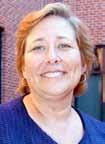
’02k arl w inge, B.S. in horticulture and landscape management, has been named agriculture and natural resources agent for Callahan County by the Texas A&M AgriLife Extension Service. The announcement was made by Callahan County Judge Roger Corn and Marty Gibbs, AgriLife Extension administrator for the agency’s West Central District headquartered in San Angelo.
Dr. aD am eS te S , B. a . in music education has recently released a solo album, “Puzzles.” Available since January, the album features new works by Baljinder Sekhon and Jiohn Leszczynski, as well as standards by Paul Creston, Lawson Lunde and Anthony Lennon.
Associate professor of music at the University of Mississippi, Estes teaches saxophone and bassoon, woodwinds methods courses and coaches woodwind chamber ensembles.
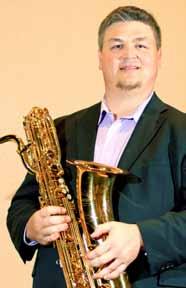
Estes is a founding member of the Assembly Quartet and maintains an active performance schedule as a soloist, chamber musician and orchestra musician. His performing career has taken him to venues in Scotland, Ireland, Austria, Switzerland, France and Belgium.
“Puzzles,” recorded on the Albany Records label, is available on Amazon.
Year at Boerne High School in Boerne, Texas. Lenard began his teaching career in 2014, serving as the agricultural mechanics teacher at BHS and implementing a new welding and agricultural mechanics program. He serves as Career and Technical Education Department Chair and as advisor to the FFA chapter. While at Tarleton, Lenard was a member of Phi Eta Sigma honor society and participated in the National Intercollegiate Rodeo Association.
a man D a n ece SS ary, B.S. in agriculture services and development, and M.S. in agriculture and consumer resources, ’14, transferred from Andrews County to Archer County as a Texas A&M AgriLife Extension Service agriculture and natural resources agent. Necessary, a native of Clifton, worked at Iowa Select Farms in Iowa Falls, Iowa, and the Bosque Soil and Water Conservation District in Meridian prior to joining the AgriLife Extension team in 2014.
r yan h olt, m .S. in criminal justice, took over in January as Waco Police Chief after serving as assistant chief since 2008. Holt joined the department in February 1996 and has served as a crisis and hostage negotiator, public information officer, SWAT supervisor and special deputy for the Lone Star Fugitive Task Force. Holt graduated from the FBI National Academy and holds a bachelor’s in criminal justice from Stephen F. Austin State University.
Dr. r icky eD i S on, m . a . in education administration, and Ed.D. in educational leadership and policy studies, ’13, will be Waco University High School’s new principal for 2017-18. Edison, a past teacher and coach at the high school, has been the Superintendent in Abbott ISD for the past six years. A 1996 Baylor graduate, he has spent 20 years as an educator in Central Texas.
’06 Sam Ski D more, B.S. in kinesiology and exercise science, was named Belton High School’s offensive coordinator. Skidmore joined Belton’s coaching staff in 2014. He has served as an assistant athletic director, the team’s offensive coordinator, and their strength and conditioning coach. Before coming to Belton, Skidmore served as the offensive coordinator and assistant head coach at Cleburne High School from 2012 to 2014, the offensive line coach and run game coordinator at Brownwood High School from 2009 to 2012, and as the co-offensive coordinator at Wills Point High School from 2008 to 2009. Skidmore, who earned 2004 Offensive Lineman of the Year for the Lone Star Conference during his grid career at Tarleton, also has a master’s degree in kinesiology from Sam Houston State University.
’10 c raig l enar D , B.S. in agricultural science, has been named 2017 District Teacher of the
g eri k line, B.S. in agriculture economics and M.S. in agriculture and consumer resources, brings her extensive knowledge of agriculture to Calhoun County residents as the newest Texas A&M AgriLife Extension agent for agriculture and natural resources. Kline received her associate’s degree of applied science in diesel equipment technology from Texas State Technical College prior to attending Tarleton. Kline also has advanced agriculture literacy as an assistant agent based in Gonzales County working for the Luling Foundation serving Gonzales, Guadalupe and Caldwell counties.
Si D ney a tchley, B.S. in agricultural services and development, has accepted the position of family and consumer sciences agent with the Texas A&M AgriLife Extension Service in Carson County. Atchley, a native of El Paso, recently completed an internship with AgriLife Extension.
Send your alumni and class updates to Tarleton State University Box T-0730, Stephenville, TX 76402 media@tarleton.edu | (254) 968-9460
To update your mailing address , contact Advancement Services ebouquet@tarleton.edu | (254) 968-9948
when Brad Wuest speaks of a family business, the emphasis is on family.
The 1996 Tarleton graduate presides over the third generation of familial leadership of Natural Bridge Caverns, an iconic Texas tourist attraction between San Antonio and New Braunfels.

Since the discovery of the cavern on the family ranch in 1960, Wuest’s kin have been in charge. It was almost predestined for Brad, who started working a cash register in the snack bar at about age eight and guided tours at 15, to take the reins.
His grandmother was the founding president of the business when few women served in such a capacity.
“She had amazing accomplishments at a time when women were not in many such significant roles,” Wuest said. “She was the first woman president of the National Cave Association, one of the founders of it. She was one of the founders of our tourism association in Texas.
“As an elementary student, one busy day here, she told me, ‘One day you’re going to be the president, CEO of this business. I’m going to do everything I can to teach you to do that.’ Even at that young age they were intending on me doing this. I felt I had an obligation to continue to build on a family legacy. I never seriously thought about doing anything else.”
With the family’s holdings split between the cavern and ranching, Wuest headed to Tarleton for an education that would encompass both. Majoring in agriculture services and development with an emphasis in business, he took as many classes as possible that pertained to the commercial aspects of the burgeoning empire.
“My thought process at the time was to get a good blending in education from an agricultural perspective,” he said, “but I also wanted to select classes I knew would be beneficial for me with Natural Bridge Caverns. Marketing, business, law, finance, things like that. I spent a lot of time in the business school.”
Earning multiple nods to the Dean’s List for his academic work, Wuest took the time to immerse himself into Tarleton traditions, too, wearing the Purple and White of the Plowboys spirit organization all four years in Stephenville.
When he graduated, his grandmother hired him as the director of marketing and public relations. Those duties lasted just a little over a year before she passed away, moving him into a VP role, behind his father, who became president. More family heartache followed four months later when his father died of throat cancer.
“After my father died I became president and my brother Travis, who was a student at Texas A&M, became VP,” Wuest explained. “Our mother became the chief financial officer and the three of us really pulled together as a team.
“We’ve got strong faith,” he continued. “We believe that God helped us through this and equipped us to be able to deal with it. We were able to get through that difficult time period and build upon the legacy my grandparents and my father had created.”
Build upon it they have.
Wuest estimates more than 400,000 visitors a year pour through the turnstiles at Natural Bridge Caverns. The attraction, which employs upwards of 220 workers, recently went through a multi-million-dollar expansion.
Family continues to be the emphasis.
Wuest recently welcomed a son into his brood. Young Harrison, namesake of grandfathers on both sides named Harry, joins sisters Ashley, 14, Clara, 3, named for Wuest’s grandmother, and Emily, 19 months, named for a greatgrandmother.
Ashley, a fourth-generation family worker in the caverns, is already running a cash register, restocking the store, sweeping and cleaning tables.
“She’ll be 15 soon,” Wuest said, “so this summer I’ll start training her to take tours.”
It’s a family tradition.
there’s no denying Trenzio Turner’s time at Tarleton was marked by one word success.
The 2000 graduate with a degree in marketing wisely banked his experience on campus to create a blueprint for even more success after graduation.

As a student, he won the 1999 MLK, Jr. Leadership Award, the 2000 John Tarleton Spirit Award, and the 2000 John Fielding Higgs Award as the Most Valuable Player of the Texans football team.
As planned, he also has been successful after graduation, working in the advertising industry, and earning a partnership in a highly regarded Austin firm.
“Everybody I came across took time out to chat with me,” Turner said of his time on the Tarleton campus, “not just about school but about life. I learned a tremendous amount.
“I look at contracts every day now, flashing back to some of those things I learned in business law class.”
A standout football player at Austin’s Crockett High School, Turner accepted a scholarship offer as a linebacker for Tarleton, anchoring the Texan defense for three seasons, and more importantly learning valuable lessons.
“Playing collegiate athletics taught me a lot,” he said. “You have to get a bunch of guys headed in one direction. My football coaches used to tell me I was learning things that would help me in the business world and I used to smile at that. But I’ll tell you, they were right.”
His relationships at college, and even in high school, turned out to be vitally important to Turner’s future plans.
Turner had become friends with a brother and sister in high school in Austin. Little did he know those siblings’ dad was a Tarleton professor who turned out to be an academic ally for the incoming freshman.
“Dr. (Robert) Newby was my first college class, 8 a.m. Monday, Wednesday and Friday,” recalls Turner. “I didn’t know him at the time, but when I got to class he knew who I was. I finally figured out ‘Oh, you’re Milam and Noelle’s dad.’ He
really helped me out a lot when I first got there. It was nice to have a friendly voice and face who knew me from home.”
His connection to the Newby’s was cemented when, for his 40th birthday, the family created a Tarleton marketing scholarship in his name.
“Dr. Newby is a dear friend of mine and I treasure that friendship,” Turner said. “He and his family have been very good to me.”
As an upperclassman and through continued relationships with the Newby family, Turner applied to and was hired at Austin advertising powerhouse GSD&M, where he plied his trade for five years. In 2005 he moved to SWG&M, which became Sanders/Wingo a year later. By 2010, he was a partner.
He credits Tarleton with providing him the tools to work in the industry.
“They do a great job of teaching the foundational pieces, setting you up to go out into the real world and apply them,” Turner said of his Tarleton professors. “I always felt like college was a mini real world. You have some guard rails around you, so you don’t just completely fall off the cliff. You’ll have some peaks, some valleys and you’ll have to work with people from all different backgrounds, perspectives and persuasions with the goal of getting things done.
“That’s exactly what I do every day, and Tarleton did a great job of setting up a situation that allowed me to learn and grow there.”
Turner and his wife, Ursula, have a five-year-old son, Chase, who might be a Texan in the future.
“My cousin, about nine years younger than me, went to Tarleton,” Turner said. “A big part of the reason he went was because I’d had such a great experience there. When it came time for him to look, it was an easy choice. I would definitely do the same for my son.”
Turner returns to his alma mater as frequently as he can, speaking to student organizations when invited.
“Tarleton gave me such a complete experience,” he said.
From Tarleton to marketing partnership, Turner enjoys successB Y Ph IL rIDDL e
aseries of major life set-backs caused Jay Barnett to struggle, even consider taking his own life, but a crucial emotional turnaround led him to a career of mentoring and motivating young people in crisis.
Moving from his home in Mississippi to Grapevine when his parents split created issues he had to deal with throughout adolescence and college. The realization of how tough it was to work through those problems motivated him to initiate programs for young people, particularly young African-Americans, in similar circumstances.

“I grew up in a single-parent home,” Barnett said. “I was blessed to get an athletic scholarship to Tarleton, and really, I didn’t have a lot of male guidance because my parents divorced when I was very young. I made a lot of mistakes as a teenager.”
Barnett, Tarleton’s first-ever four-year starter as a linebacker, recalled how he would show up at football practice, hiding the fact that his mother was homeless.
“I understood that finishing this part of my life would help me later,” he said. “If I had quit school, it would have been a temporary fix. It was important for me to stay in school.”
“ No one in my family had ever gone to college. I was the first one of five kids. I had to feel my way through a lot of things because I didn’t really have a model or a blueprint to follow. ”
Jay BarnettHe made enough of an impression on the Memorial Stadium gridiron to attract the attention of the NFL. He got a tryout with the Green Bay Packers, but failed to get a contract offer. He played for several teams in different arena leagues before giving up on his dream of playing professional football.
“I struggled with depression and I considered suicide,” he said. “I felt like a failure. Football had been my mechanism for coping with the obstacles we lived through as a family. When I couldn’t play anymore, I found myself in a dark place.”
That was where his education at Tarleton kicked in.
“I had a minor in business,” Barnett, a 2005 graduate, said. “And that was probably the best thing that ever happened to me. I had to design a business marketing model and that is what I fell back on.”
He started playing to his strengths, which included motivational speaking and mentoring at-risk teenagers. His work has led him to share lessons he learned through difficult times. His book directed toward young men, Hello, King , earned book of the month honors from Grown Zone, an online personal development site. He also has created The ME (Men of Excellence) Project and WE (Women of Excellence) Project, five-week programs to drive leadership, character and mental stability.
Headquartered in Atlanta, Barnett recounts working with thousands of at-risk youth over the last eight years.
“No one in my family had ever gone to college. I was the first one of five kids. I had to feel my way through a lot of things because I didn’t really have a model or a blueprint to follow.” That sense of uncertainty inspired his mentoring programs. The aim is “to give kids the tools to find themselves quickly through their adolescent years because those are some of the most challenging years you can face.”
“When I first started out in business, I was training athletes,” he said. “I came from that arena. I saw a lot of kids progressing physically, but regressing when it came to their mental growth. I wanted to create something they could utilize to make solid life decisions.”
the unlikely combination of meticulous planning and being in the right place at the right time gave Craig Hernandez the opportunity at an unexpected career— and recognized excellence.
The 1999 Tarleton graduate has worked as a Texas game warden for 14 years, the last two as an instructor at the agency’s training academy near Hamilton. Hernandez is also part of the Texas Parks and Wildlife Department’s elite Underwater Search and Recovery Dive Team.

Named the Sikari-Safari International Wildlife Officer of the Year in 2014, Hernandez has won several honors for his work. His was tabbed the TPWD Outstanding Team of the Year in 2016.
His important first step in a circuitous route toward becoming a game warden came when 17-year-old Hernandez joined the Army as a way to later pay for a college education.
When his military stint ended, he, his half-brother, Tarleton graduate Aaron Wilson, and father toured Texas colleges looking for the right fit. Both found it at Tarleton.
“We started traveling to colleges across the state,” he said, “and I don’t think we missed one. At the time Dr. (Don) Knotts was the Dean of Agriculture. It was his personal touch on the day we showed up to campus that was the difference.
“He said, ‘Let‘s go get in the truck and drive out to the ag farm.’ He spent about half his day with us. That influenced me.”
At Tarleton, Hernandez traveled a busy road, participating as a Purple Poo, with the Plowboys, ROTC and the Student Alumni Association. Afterwards, he took his Agricultural Services and Development degree and began a job selling farm equipment for a Waco business.
He covered three states and, within a few years, he was looking for a career that involved less travel.
By chance, he ran into fellow Tarleton alumnus Tim Walker, a game warden, who invited him on a ride-along.
“The first night I rode with Tim, I knew this was for me,” Hernandez said. “It’s a good balance between the military,
because I enjoy the discipline, and my rural agriculture background. It combined all the things I already knew.”
Graduating from the Game Warden Training Center in 2002, he worked in Hunt County for six years before transferring to Freestone County.
“A drowning occurred there on Richland Chambers Lake,” he said. “We did not have the resources to make the recovery and we were counting on other agencies. This was nothing new, but it was definitely the catalyst that allowed our supervisors to say, ‘we’re going to create our own dive team.’”
Currently a lieutenant at the training academy, Hernandez is qualified to teach cadets firearms, defensive tactics, field sobriety testing, communication and problem solving, multiculturalism and basic Parks and Wildlife code.
He regularly turns to his Tarleton education in his position.
“I got my minor in human resource management,” Hernandez said. “I did that intentionally to be on the opposite end of the spectrum from what most people would think of when they think of agriculture.
“Having that agricultural background gave me enough insight to be able to understand and speak on a landowner’s level. Right now I’m in management, so that human resources side of my education is something I deal with every day.”
Hernandez regularly deals with a workplace colored with a decided purple tinge.
“We just started a new cadet class,” he said. “When I teach my first class, I tell them our major graduated from Tarleton; I graduated from Tarleton; Brad Gwynn, another of our lieutenants graduated from Tarleton; one of the guys who just promoted out, Jason Bussey, graduated from Tarleton. So of eight staff members, four last year were from Tarleton.
“I tell the cadets, ‘If you ever want to promote and do anything good, you have to be from Tarleton. Sorry about the rest of you guys. I’m sure you made a great effort, but…”
when Sam Keischnick expounds upon his career, one word pops up continually.
Lucky.
The Tarleton graduate earned his bachelor’s degree in biology in 2005 and finished his master’s studies three years later, delving into the genetics of pocket gophers.
He feels fortunate to have his job as an urban biologist for the Texas Parks and Wildlife Department, where he uses his education daily.
“I’m extremely lucky that I have this position,” Keischnick, a 2000 graduate of Aledo High School, said, explaining that he deals with the interaction of wildlife and people in the Fort Worth Metroplex. “It’s sort of unique.
“Normally when you think of wildlife biologists, you think of them in Big Bend or in the Big Country, studying some wild and elusive animal,” he muses. “Wildlife is in the city. It’s in Stephenville; it’s in Fort Worth, in Dallas.”
After studying for two years at Weatherford College, Keischnick had to choose where to continue his education.
“As soon as I got to meet the Tarleton biology professors, I was hooked,” he said. “That’s why I chose Tarleton. Now, since I’ve graduated, they’ve become my good friends, too. I get to talk with and collaborate with them.”
Since his graduation from Tarleton, Keischnick has been involved with several high-profile entities including the Fort Worth Nature Center and Refuge, the Fort Worth Museum of Science and History and the Botanical Research Institute of Texas. Additionally, he has taught in Tarleton’s biology department.
As part of his current duties with the TPWD, Keischnick leads a local Citizen Science group, a program sponsored by the National Wildlife Federation, for volunteers who help gather data for professional research.
“We go out and survey pieces of land, what we call a bioblitz,” he explained. “We survey as many different bugs and

birds and plants, molds, fungi and mammals as we possibly can.”
The volunteers then photograph their finds and add them to a national database.
With the zeal of an evangelist, Keischnick cites the source of his good fortune.
“It’s a ‘pinch me’ job,” he said. “I’m very lucky I get to do this. I base a lot of my luck and my good fortune on my education at Tarleton,” he said.
Lucky guy.
“ Normally when you think of wildlife biologists, you think of them in Big Bend or in the Big Country, studying some wild and elusive animal. Wildlife is in the city. It’s in Stephenville; it’s in Fort Worth, in Dallas. ”
Sam KeischnickWhile the university receives state funding, it is not the sole source of finances to provide a high-quality, affordable educational experience. Tarleton relies on private support to fully develop its academic and athletic programs, recruit students and faculty, provide scholarships, and construct and update campus facilities.
Those private donations keep on giving and, to make sure they do, school leaders created the Tarleton State University Foundation, Inc. almost 40 years ago.

A nonprofit organization, the foundation provides financial assistance to Tarleton from earnings on endowed funds, gifts and property. It acts independently of the university and The Texas A&M University System solely for the benefit of the school.
“Private gifts help Tarleton continue its dynamic growth, development and excellence, and advance its vision to be the premier student-focused university in Texas and beyond,” said Foundation President J.D. “Chip” Davis. “Private gifts empower higher education, and education empowers people to transform lives and communities.”
Cash donations are welcome, as well as gifts of marketable securities, charitable annuities, real estate and personal property—like rare books, works of art and valuable collections. Contributions are tax deductible, as determined by the IRS. Donors should speak with an attorney or advisor about specific tax benefits or issues.
Donors can specify how they want their gift used, or allow Tarleton officials to choose based on university priorities and needs.
“Donors not sure where to begin might consider scholarships, faculty development and endowed professorships—Tarleton’s top priorities,” Davis explained. “An endowed scholarship—one awarded annually—is an investment in human capital and pays huge dividends. The university proves it every day with graduates who excel in their careers to improve quality of life.
“Yet, more than 80 percent of Tarleton students face challenges in funding their education and require some sort of financial aid,” he pointed out. “There’s no better way to leave a personal legacy or honor a loved one, friend or favorite professor or coach than by investing in young men and women destined to become great leaders.”
Gifts for faculty enhancement and professional development or to endow a faculty professorship help Tarleton attract top-notch scholars who add knowledge to their discipline and share that learning with their students.
Currently, Tarleton has two endowed faculty positions, but more are needed for the university to meet critical needs in Texas health care, business and engineering. The state is calling for universities to prepare more professionals in business and engineering, and private support is crucial.
The foundation, is managed by a 12-member volunteer board that meets twice a year. An audit of the foundation’s complete financial statements is conducted annually by an independent firm of certified public accountants.
For more information on the foundation, visit www.tarleton.edu/foundation .
To learn more about Tarleton’s Office of Development, go to www.tarleton.edu/giving.
Box T-0570
Corps of Cadet Commandant Col. Kenny Weldon, the Wainwright Rifles, along with Tarleton State University President Dr. F. Dominic Dottavio, and The Texas A&M University System Chancellor John Sharp were on campus in January 2017 to raise a Centennial flag in front of the E.J. Howell Education Building, which was the original Administration Building in 1917, the year that Tarleton joined the A&M System.
Learn more about the yearlong Centennial Celebration: www.tarleton.edu/centennial
